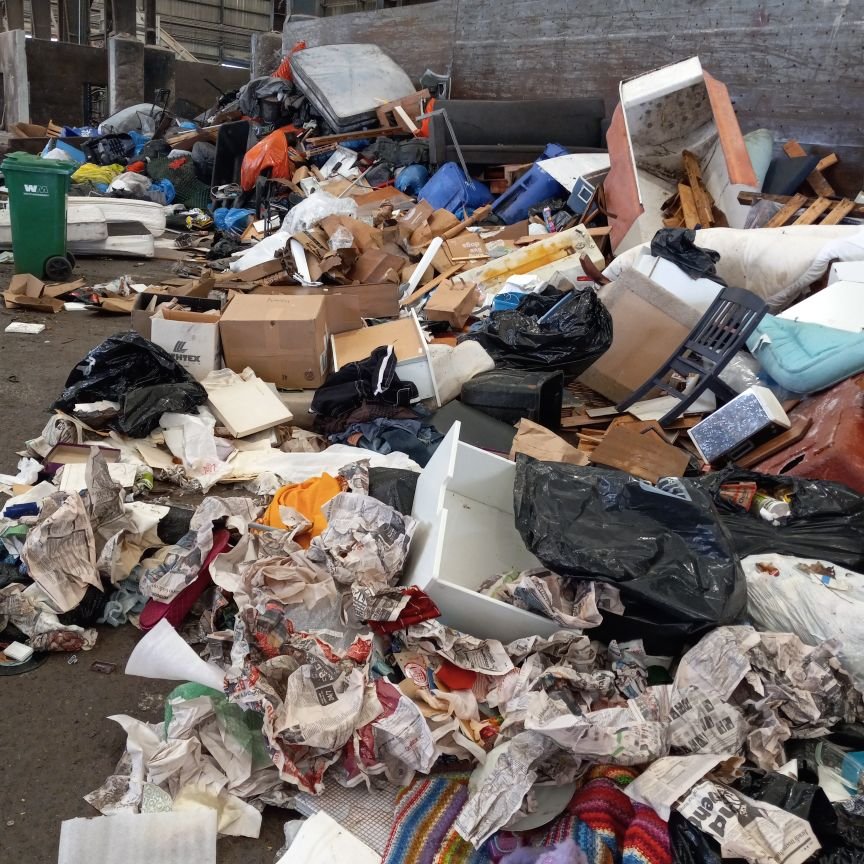Exploring the Relevance of Reclaim Waste in Sustainable Waste Administration Efforts
In the realm of lasting waste management, the concept of redeeming waste arises as a vital part that requires focus and factor to consider. As we browse the complexities of modern garbage disposal techniques, the relevance of reclaiming waste introduces a nuanced strategy to mitigating ecological effect and fostering an extra sustainable future. By analyzing the elaborate interplay in between waste reclamation and lasting waste administration initiatives, we start to unwind a narrative that expands beyond standard waste disposal methods. Via a lens that prioritizes source efficiency and ecological preservation, reclaiming waste uses a compelling opportunity for addressing pushing environmental challenges while leading the way for ingenious remedies in the realm of waste management.
Relevance of Reclaiming Waste
Why is redeeming waste vital in sustainable waste management methods? Reclaiming waste plays an important role in lasting waste administration by lowering the quantity of waste sent to land fills, conserving all-natural sources, and reducing environmental influence.
Furthermore, recovering waste fosters a round economic situation where products are reused and recycled constantly, promoting a much more efficient and sustainable use sources. It also adds to the development of green jobs and financial growth in the recycling and waste management field. By integrating waste recovery methods into waste monitoring companies, approaches and neighborhoods can move in the direction of a more lasting future, where waste is viewed not as a concern but as a beneficial resource.
Advantages for the Environment
In the realm of lasting waste management, the practice of reclaiming waste not just minimizes and conserves natural sources waste sent out to garbage dumps but likewise produces substantial benefits for the atmosphere. By recovering waste products, such as steels, glass, plastics, and raw material, the ecological influence of resource removal and manufacturing is minimized (Reclaim Waste Melbourne). This causes lowered power intake, reduced greenhouse gas discharges, and lower degrees of air and water air pollution connected with extracting basic materials
Additionally, recovering waste assists in the preservation of biodiversity and all-natural environments. It reduces the need for landfill space, thus reducing land deterioration and habitat damage. Furthermore, the process of recovering waste frequently includes recycling and repurposing materials, which in turn decreases the demand for brand-new products and the connected energy and resources required for their production.
Payment to Circular Economic Climate
Playing a crucial function in fostering sustainability and source efficiency, reclaiming waste makes a considerable contribution to the circular economic situation. By reintroducing disposed of materials back into the manufacturing cycle, redeeming waste lessens the requirement for virgin resources, consequently minimizing the general environmental influence of source removal and usage. This process straightens with the principles of the circular economic climate, which highlights maximizing the worth and utility of sources with closed-loop systems.
Furthermore, reclaiming waste advertises development and encourages the advancement of new modern technologies and procedures for recycling and upcycling products. This not only reduces waste sent out to landfills but additionally produces brand-new economic possibilities by generating additional resources for making industries. Because of this, reclaiming waste helps to produce a more lasting and resilient economic climate that is less depending on limited resources and vulnerable to disruptions in the supply chain. Eventually, by incorporating waste improvement techniques into waste monitoring efforts, areas and businesses can actively add to constructing a more circular and regenerative economic climate.
Lowering Garbage Dump Waste

Education and recognition campaigns on correct waste disposal and the relevance of reducing, recycling, and recycling can also play a critical role in reducing garbage dump waste. By focusing on the reduction of garbage dump waste, lasting waste management techniques can be enhanced, leading to a healthier setting and economy.

Future Ramifications
Considering the quick improvements in technology and evolving environmental obstacles, the future ramifications of sustainable waste monitoring are poised to revolutionize existing methods. The adoption of cutting-edge innovations such as artificial knowledge, Internet of Points (IoT), and blockchain can considerably enhance waste surveillance, sorting, and reusing processes. These improvements allow real-time tracking of waste streams, identification of recyclable products, and enhanced performance in resource allowance.
Furthermore, the change in the direction of a circular economic situation model, where resources are recycled, recycled, or upcycled, will come to be increasingly widespread. This transition not just minimizes the dependence on virgin materials yet also reduces waste generation, bring about a more eco friendly and sustainable waste administration important site strategy.
Additionally, the assimilation of lasting waste management methods into broader sustainability schedules is anticipated to acquire grip. Reclaim Waste Melbourne. Organizations and federal governments worldwide are identifying the relevance of waste decrease and recycling in combating climate change and promoting a circular economic climate. Therefore, policies and policies sustaining lasting waste administration campaigns are most likely to become more stringent, driving industries towards more environmentally friendly methods
Final Thought
In verdict, the importance of reclaiming waste in lasting waste administration initiatives can not be overstated. By redeeming waste, we can minimize environmental influence, contribute to a circular economic situation, and minimize landfill waste.
By examining the intricate interaction between waste reclamation and lasting waste monitoring efforts, we begin to unwind a story that prolongs beyond conventional waste disposal approaches. Recovering waste plays an important function in sustainable waste management by lowering the quantity of waste sent to land fills, saving all-natural sources, and reducing ecological influence. By including waste improvement methods into waste management services, methods and areas can relocate towards a go to this website more sustainable future, where waste is viewed not as a concern but as a beneficial resource.
